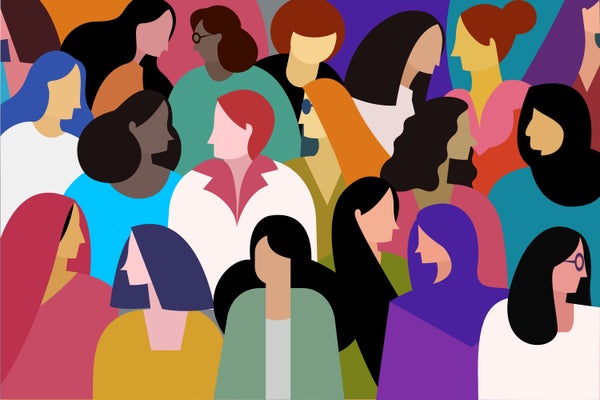The political landscape of abortion access in the U.S. has been changing fast since the Supreme Court overturned federal abortion protection in the 2022 case known as Dobbs v. Jackson Women’s Health Organization. Now abortion bans and protections are in flux across the country, with serious implications for reproductive health.
But even as conversation around abortion rights swirls, people’s assumptions about who gets an abortion in the U.S. don’t align with reality, according to research published in Science Advances. And that disconnect can influence people’s opinions about policies regarding abortion—opinions that are often nuanced and difficult for scientists to decipher.
“Most of the top-line statistics about abortion attitudes were relatively narrow in terms of how [these surveys] described attitudes and the depth that they were able to go into,” says study co-author and sociologist Tricia Bruce.
On supporting science journalism
If you're enjoying this article, consider supporting our award-winning journalism by subscribing. By purchasing a subscription you are helping to ensure the future of impactful stories about the discoveries and ideas shaping our world today.
“When you look at an issue like abortion, it quickly gets really hard to figure out what [a survey respondent’s answer] means,” she says. People often say that abortion should be legal under certain circumstances, but basic questionnaires don’t offer the space to elaborate on what those circumstances are. “Without asking and digging deeper, it’s really hard to tell where people exactly are,” she says.
In 2019 Bruce and her colleagues initiated a study to dig deeper. They started by mailing letters to 2,500 U.S. residences that asked people to participate in a study about an unspecified social issue. From the pool of respondents, the researchers conducted in-depth, freeform interviews with 217 people selected to represent national demographics.
From those interviews, the researchers identified four key characteristics that respondents thought they knew about people seeking an abortion. They envisioned that those who do so are people who aren’t currently mothers but will become so in the future; people whose decision is driven by economic concerns; people in a precarious relationship with a male partner who was involved in the pregnancy; and people in a position of weakness and suffering. The imagined person getting an abortion is often a young white woman who wants to establish financial stability before having a child, Bruce says.
There’s just one problem: that vision doesn’t at all match the average person getting an abortion. Most are in their 20s, and they’re disproportionately likely to be Black or Hispanic or Latinx. More than half have already given birth at least once. Older data from 2014 suggest that half of abortion seekers were using contraception during the month that they conceived, and more than half identify as religious. And although financial concerns drive their decisions, these tend to be concerns about making ends meet rather than long-term earning potential. Between 2015 and 2019 nearly 900,000 out of more than 5.6 million pregnancies per year in the U.S. ended in abortion, according to the Guttmacher Institute’s latest statistics.
Why is there such a disconnect between abortion perceptions and reality? Stigmatizing and silencing people who have an abortion has shaped public narratives about the issue, says Rachel Jones, a sociologist at the Guttmacher Institute, who was not involved in the new research. “Not surprisingly, people don’t understand the population of people who have abortions and the circumstances that they face,” she says, noting that these people tend to be “women who have children struggling to make ends meet and to take care of the children that they already have.” Jones led the institute’s most recent survey of people seeking an abortion, which covers the year before the Dobbs decision demolished federal abortion protections.
Jones suspects that the profile of abortion seekers has changed since the Supreme Court’s decision, although no recent data have been collected and analyzed yet, she says. And both she and Bruce think people may have a better understanding of who gets an abortion and why, given that discussions about the topic are now more prevalent.
“The landscape has just changed so much. It’s unclear how that would be reflected if they were to do the study again today,” Jones says. “But that’s not a shortcoming of the study.”
When Bruce and her colleagues conducted the interviews, they noticed that participants who had either had an abortion or knew someone who had were less likely to hold the stereotyped perceptions about people who get an abortion. Even still, the same four themes were often still present.
“Americans conjure a particular idea of what an abortion patient looks like, who they are [and] what their circumstances are, and then when we meet someone who either does or doesn’t fit that, it shakes a little bit how we think about it,” Bruce says. “It doesn’t shake it to an extent that it’s gone. These things co-exist.”
Those respondents with a personal connection were also more likely to oppose abortion restrictions and to instead favor letting individuals choose for themselves. That suggests that connecting people with the true narrative of abortion in the U.S. may result in policy changes, Bruce says.
“We should probably be checking our assumptions and thinking through what we know about what we think we know as we’re navigating decisions about our personal and moral and political positions on abortion,” Bruce adds.
